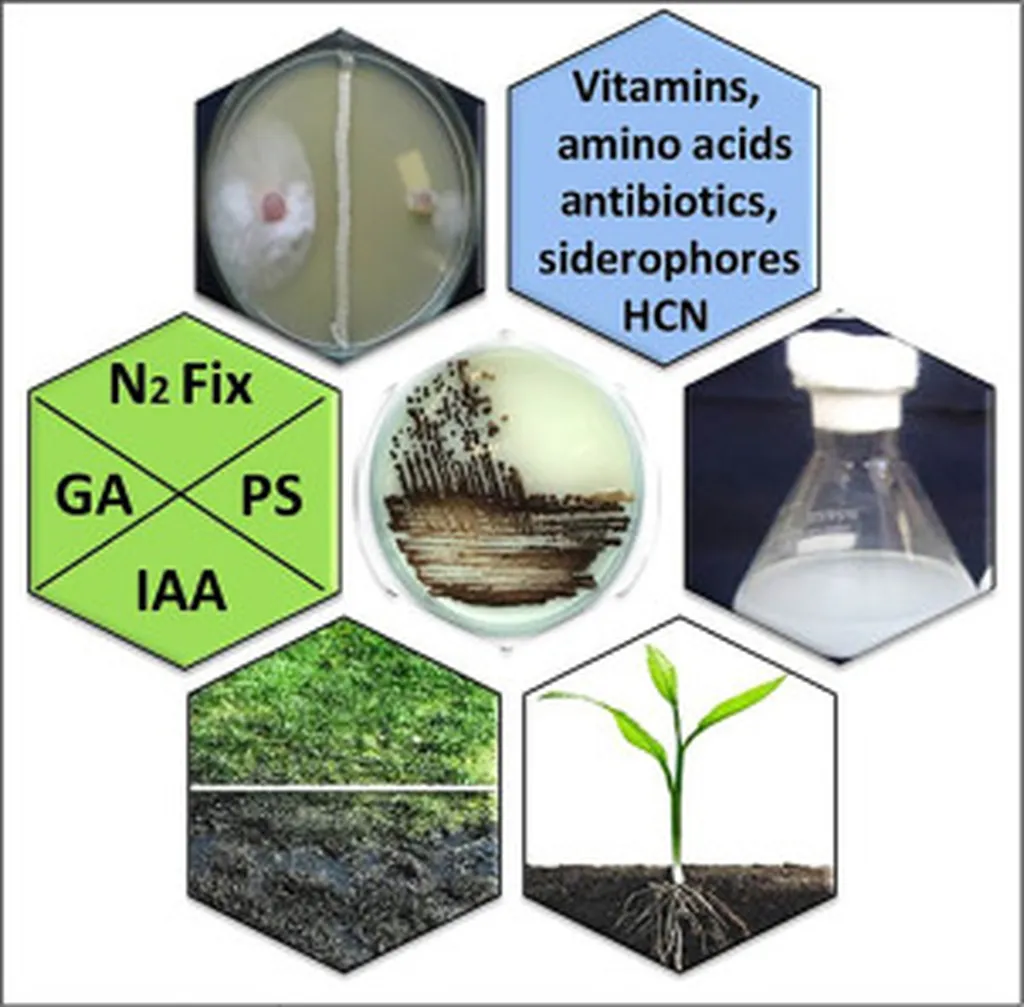In the quest for sustainable agriculture, scientists are turning to nature’s tiny helpers: plant growth-promoting bacteria (PGPB). A recent study published in the journal *Frontiers in Plant Science* (translated from the original title in English) has shed light on the potential of Azotobacter chroococcum W5, a bacterium that could revolutionize how we enhance crop yield and soil health.
Led by M. Elakkya from the Division of Microbiology at the ICAR-Indian Agricultural Research Institute in New Delhi, the research team employed comparative genomics, in vitro experiments, and metabolomic analyses to characterize the plant growth-promoting potential of A. chroococcum W5. The findings are promising, to say the least.
“Our comparative genomic analysis revealed a treasure trove of plant growth-promoting traits in the A. chroococcum W5 strain,” Elakkya explained. These traits include phytohormone biosynthesis, nutrient acquisition, stress adaptation, and colonization. In simpler terms, this bacterium has the potential to help plants grow better, acquire nutrients more efficiently, and withstand environmental stresses.
The team’s experimental assays confirmed that A. chroococcum W5 can produce auxin and gibberellic acid, two crucial phytohormones for plant growth. It also demonstrated phosphate solubilization, moderate nitrogen fixation, and the ability to grow on ACC, a precursor to the plant stress hormone ethylene.
But the real magic happened when the researchers inoculated wheat seeds with A. chroococcum W5. The results were striking: significantly enhanced germination metrics, improved seedling vigor, and altered carbohydrate metabolism in the seed endosperm. This suggests that the bacterium could be a game-changer for wheat cultivation, one of the world’s most important crops.
The study also delved into the bacterium’s response to salt and osmotic stress, conditions that often hamper plant growth. Metabolomic profiling revealed that A. chroococcum W5 ramps up the production of osmoprotectants like proline and glycerol to combat these stresses. It also showed changes in oxidative stress markers, indicating a robust stress adaptation mechanism.
So, what does this mean for the future of agriculture? The potential is immense. As Elakkya puts it, “Our results show that the A. chroococcum W5 strain has great potential for the development of novel formulations.” These formulations could reduce our reliance on chemical fertilizers, enhancing soil quality and crop yield in a sustainable manner.
Moreover, the study highlights the broader potential of plant growth-promoting microorganisms. As we grapple with ecological degradation and reduced biodiversity, these tiny allies could offer innovative, sustainable solutions. They could also shape future developments in the energy sector, particularly in bioenergy production, where crop yield and soil health are paramount.
In conclusion, this research is a significant step forward in our understanding of plant growth-promoting bacteria. It opens up new avenues for sustainable agriculture and offers a glimpse into a future where we work in harmony with nature, rather than against it. The study was published in *Frontiers in Microbiology*, a testament to its scientific rigor and potential impact. As we look to the future, the humble A. chroococcum W5 might just be the unsung hero of our agricultural revolution.

